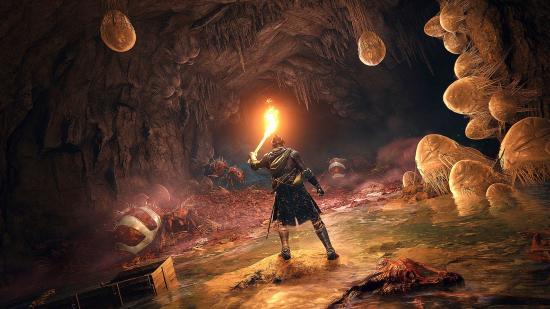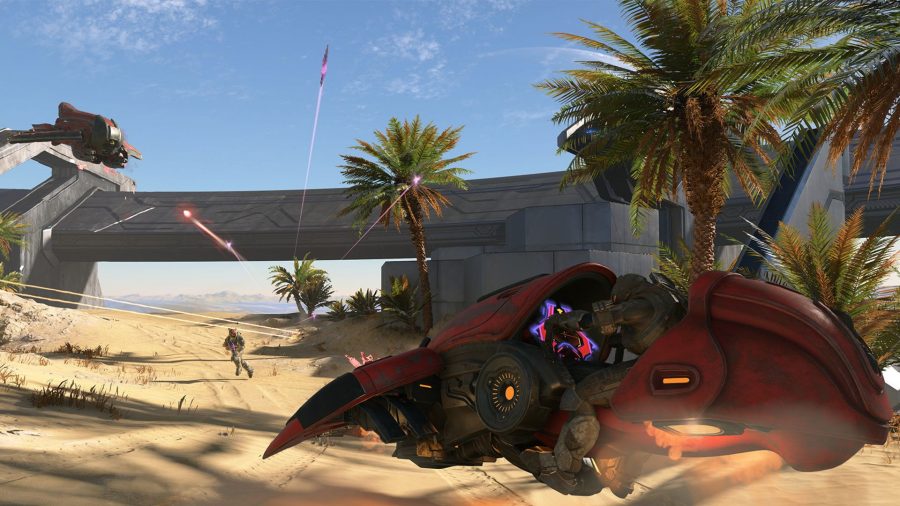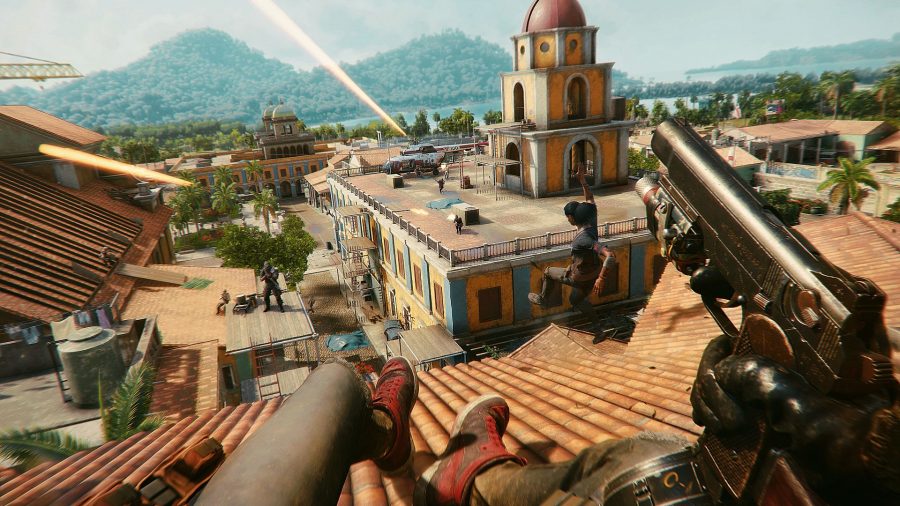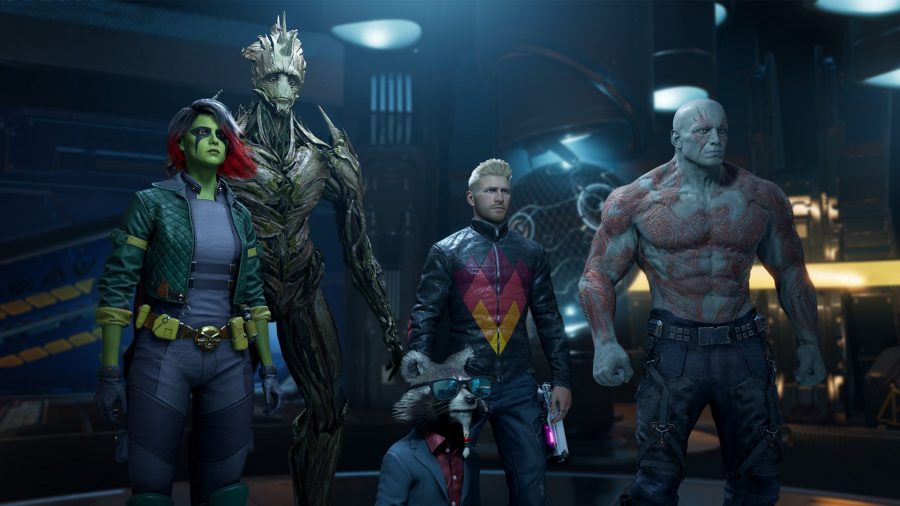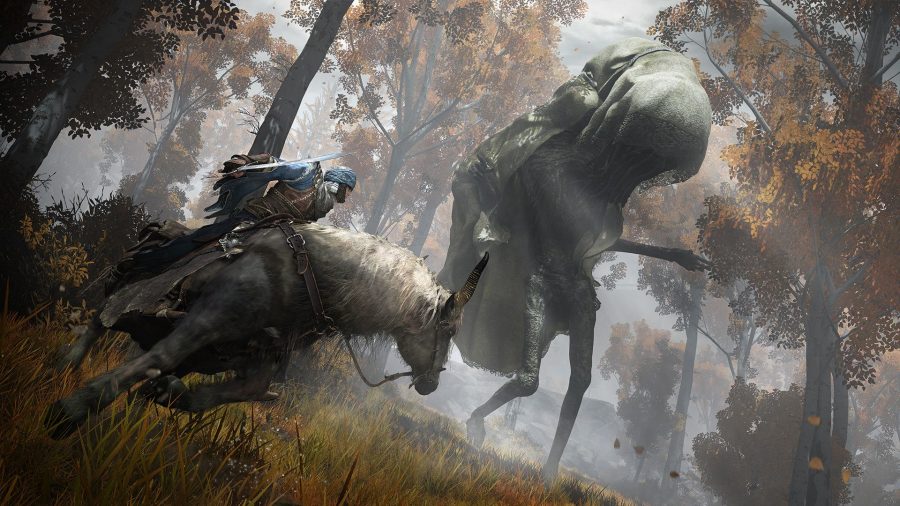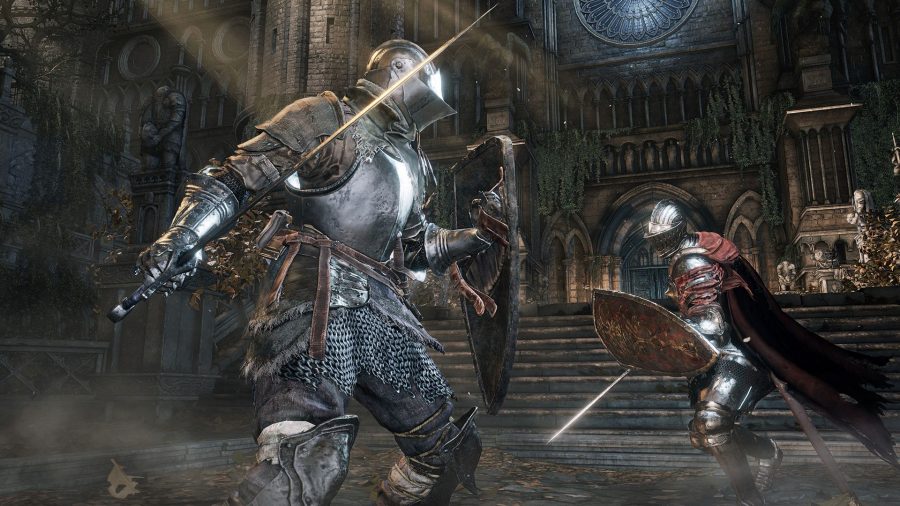I was so thrilled I couldn’t believe it. Before me was an email expressing interest in a pitch I’d sent, which would later be published as my first op-ed for this site: ‘How RPGs like Cyberpunk and Dragon Age change perceptions of accessibility’.
The pitch took a year for me to develop and build the confidence to find it a home, and was the result of frustrations that had simmered over years as a disabled gamer with mobility impairments. Like many other disabled gamers, I was exhausted by the rehashed, simplistic ‘controversy’ around the necessity of accessibility features for disabled gamers versus the ableist assumption that we can ‘git gud’ with practice, or accept our exclusion. I wanted to introduce a new perspective, using RPG mechanics to illustrate how one’s ability to overcome a set of barriers is a matter of relativity, and to ask the industry to move past tired notions of accessibility being a matter of every game having an ‘easy’ mode.
Only one month after my op-ed was published, a slew of major game releases made parts of my argument old news.
Rather than being upset or embarrassed about my work losing relevancy so quickly, I was ecstatic. I believed it would take many more years for the game industry to start dismantling ableist myths, not a handful of months. But as it turned out, the last months of 2021 made it the biggest year for gaming accessibility to date.

Some highlights were: Far Cry 6 launching with the most robust accessibility suite in a Ubisoft game at the time; Marvel’s Guardians of the Galaxy raising the industry’s bar for captions and redefining ‘difficulty modes’ by adding customisable combat settings; Falling Squirrel’s and Creative Bytes Studios’ thoughtful marriage of accessibility and representation for blind gamers in The Vale; and Playground Games’ thorough accessibility integration with Forza Horizon 5, implementing American and British Sign Language, colour blindness and high contrast modes, and allowing players to reduce the game speed.
In hindsight, PCGamesN publishing my first pitch hinted at where the wind was blowing. Trends in game journalism mirror trends in development, after all, and accessibility is quickly becoming a mainstream topic at studios and publications alike. Case in point: After my op-ed was published, I was invited to write an accessibility review for Far Cry 6, the first ever accessibility review featured on the site.
Other websites also improved their accessibility coverage. Last December, Fanbyte published its first accessibility review, written by journalist Grant Stoner for Halo: Infinite.
Grant and I both have a disability called spinal muscular atrophy (SMA), and we share sentiments on the evolution of accessibility and game journalism. We agree that in 2021 it became clear that the industry required more nuance.
Relying on difficulty modes and settings “won’t cut it anymore.” Grant says. His review of Halo Infinite rightly underlines that settings menus cannot “fix” inaccessible game design choices. He’s not the first to express this criticism in a review, and he won’t be the last. Gaming publications are increasingly realising there’s an information gap that can only be filled by giving disabled gamers a platform to tell their stories, and that filling the gap is key to inclusive solutions for developers, in more ways than one. If not for seeing figures from disabled communities in game media, some of us may never have spoken up, and the industry would be worse off.
“Before I began writing, I noticed that stories pertaining to the disabled experience were always framed under an ‘inspiration’ lens, which almost belittled disabled people for the purpose of making non-disabled readers feel better about themselves,” Grant explains. During our conversation, we talked about the publications that changed our perception of game journalism and fueled our drives to read and write more stories on disability and accessibility. Inevitably, the publication Can I Play That? came up.
“Until I found Can I Play That? and was brought on as a [mobility editor], I didn’t want to read any [stories related to disabilities],” Grant recalls. “I’ve since left, but I’m forever grateful for that site and the people there who revolutionised the industry.”
Can I Play That? can be seen as a reflection of how far the industry has come and the obstacles ahead on our way to full disability inclusion. The publication began in 2018 as a small, volunteer-run site aimed at informing disabled gamers about the accessibility of new games – it’s especially important to know if you can play a new release when game prices are going up. Since then, Can I Play That? has been pivotal in proving to the industry that accessibility isn’t just necessary, but profitable, both socially and financially. Part of its contributions in 2021 included the establishment of the Susan Banks Advocacy award in partnership with Ubisoft, named after one of the publication’s co-founders.
I reached out to Can I Play That?’s current editor-in-chief Ben Bayliss for comment, asking if he was surprised by Can I Play That?’s success and significance. “I want to say yes, purely because disabled people are often excluded and so seeing vast numbers of support has been… almost uplifting? However, I’m not surprised because we’ve worked damn hard,” Ben says.
“When I joined the site in 2020 we really put in a lot of work to generate content you’d expect to see from a fully functioning journalistic outlet. Our coverage on major releases such as The Last of Us: Part 2, Xbox Series X, PS5, Forza Horizon 5, and more saw high-quality news, interviews, reviews, and features ready to go for embargoes.”
Yet, despite growing into a professional and award-winning beacon for accessibility, Can I Play That?’s core staff voluntarily worked unpaid until January 2022. Before, the publication’s Patreon funds would go towards site expenses and featuring as many diverse writers as possible, allowing more folks to get into game journalism. Now, at the time of writing this, CIPT is sorting out a new balance that will work for them.
Can I Play That?’s staff deserve compensation. However, their predicament raises a key question: does the industry value disabled gamers, developers, and consultants anywhere near as much as the profits we generate? When CIPT announced the changes on Twitter, it noted it had “unfortunately come to serve as sort of a free accessibility consultancy”.
“[The staff] works full-time or freelance jobs on the side and we dedicate the time we can to the site content. I personally enjoy the fulfilling nature of accessibility content such as writing news, reviews, and features, but the balance shifts very frequently and we have to forgo Can I Play That? content to ensure we’re earning.”
I’ve been fortunate to work with great companies as a writer, who offer fair pay and have established a trusting, working relationship with me. Unfortunately, full-time and freelance disabled hires don’t always have these privileges. It’s not an issue limited to the game industry, but it’s particularly glaring here because of the mainstreaming of accessibility.
While furthering the cause of accessibility for gamers, we ought to bring accessibility in hiring practices and working conditions within studios and news publications into the conversation as well. Last year, Améliane F. Chiasson, Guardians of the Galaxy’s accessibility lead, was asked about why the studio had credited accessibility speakers – if something so basic is being questioned then more recognition of the importance of disabled creatives in game development is overdue.
We can’t forget that accessibility consultation isn’t all disabled individuals are good for either. The mainstreaming of accessibility should herald the normalisation of disabilities and lead to disabled hires filling more roles in other areas of the industry. “I truly hope the industry begins highlighting disabled voices beyond articles. I want to see disabled guests on podcasts, on the front page of Twitch – which they started doing – and most of all, just being viewed as equals,” Grant says.
2022 and beyond can absolutely outshine 2021 in terms of disability inclusion in gaming, but it will take nuanced efforts from the entire industry.
We already have hints of a promising year ahead. For the first year ever, the Game Developers Conference’s State of the Industry survey reports that a majority of developers answered ‘yes’ when asked if they’ve implemented accessibility features in their games. Accessibility in hardware design still lags behind software progress, but with disabled streamers pointing out the benefits of Elgato’s Stream Deck Pedals to them – similar to how gaming mice with plenty of remappable buttons benefit me – more people may see accessible technology simply as technology that’s designed for everyone’s convenience.
From Software marketed one of this year’s biggest releases as more approachable than previous offerings; Elden Ring’s producer said the game is designed to ‘reduce player stress’. The inaccessibility of Souls games has led to numerous ‘controversies’ about difficulty modes. At least the conversation this time has largely eschewed the simplicity of previous ones: there’s a huge difference between being accessible and being approachable.
Hopefully, as this year’s progress towards inclusivity unfolds, you might see disabled journalists cover all its highs and lows.
 Elden Ring Elden Ring $59.99 $50.39 Buy now Network N earns affiliate commission from qualifying sales.
Elden Ring Elden Ring $59.99 $50.39 Buy now Network N earns affiliate commission from qualifying sales.
